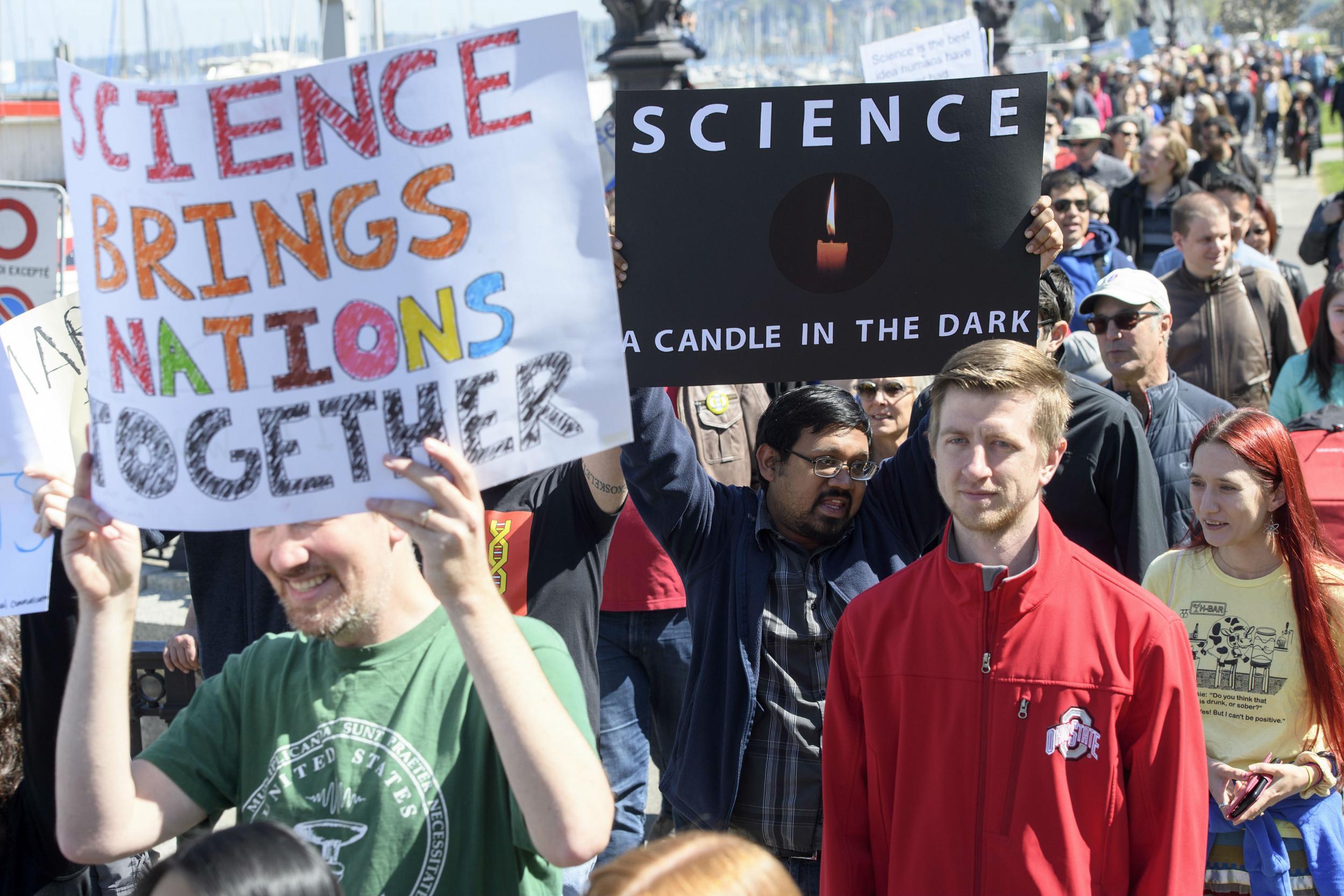March for Science: Thousands march in 500 cities to protest Donald Trump's 'rejection of science'
Mr Trump has been accused of turning his back on established empiricism

Your support helps us to tell the story
From reproductive rights to climate change to Big Tech, The Independent is on the ground when the story is developing. Whether it's investigating the financials of Elon Musk's pro-Trump PAC or producing our latest documentary, 'The A Word', which shines a light on the American women fighting for reproductive rights, we know how important it is to parse out the facts from the messaging.
At such a critical moment in US history, we need reporters on the ground. Your donation allows us to keep sending journalists to speak to both sides of the story.
The Independent is trusted by Americans across the entire political spectrum. And unlike many other quality news outlets, we choose not to lock Americans out of our reporting and analysis with paywalls. We believe quality journalism should be available to everyone, paid for by those who can afford it.
Your support makes all the difference.Thousands of scientists from around the world are marching to protest over what they term Donald Trump’s rejection of science.
Participants in the March for Science, coinciding with Earth Day, are turning out in at least 500 cities, with the largest number in Washington DC.
The protests, which was inspired by the Women’s March which took place in cities around the globe the day after Mr Trump’s inauguration, are designed to highlight the way Mr Trump has apparently dismissed science on everything from climate chance to the safety of vaccine immunisations.
Andrew Rosenberg, director of the Centre for Science and Democracy at the Union of Concerned Scientists, told The Independent the Trump administration’s stance on science was even more extreme than that of George W Bush, one of whose first acts as president was to turn his back on the Kyoto Treaty.
“It’s not just on climate change - it’s on issues of public safety, things that impact child development,” he said. “We have never seen things as bad as this.”
The organisers point out that Mr Trump has rolled back most of the environmental protections enacted by Barack Obama, introduced to try and cut emissions of carbon dioxide. The Republican president has cut funding to the Environmental Protection Agency and is planning to reduce the grant to the National Institute of Health by 20 per cent.
“Scientists find it appalling that evidence has been crowded out by ideological assertions,” Rush Holt, a former physicist and Democratic congressman who runs the American Association for the Advancement of Science, told the Associated Press.
“It is not just about Donald Trump, but there is also no question that marchers are saying “when the shoe fits”.”
Mona Hanna-Attisha, who exposed the dangerous lead levels in the drinking water and children’s blood in Flint, Michigan, planned to march in Washington and speak to the crowd.
“It’s risky, but that's when we make advancements when we take risks…for our heart rates to go up, to be a little anxious and scared and uncomfortable,” she said before the event.
Bob Ward, policy and communications director at the Grantham Research Institute on Climate Change and the Environment at the London School of Economics and Political Science, said he was travelling to Washington to show solidarity with American climate scientists who he said were under attack from from politicians, companies and lobbyists.
“Climate scientists perform a vital public service in analysing and documenting the risks to families and businesses from climate change impacts in the United States and across the world,” he said.
“The intensity of attacks on climate scientists and their work has increased since January as the Trump administration has targeted them for cuts in federal spending.”
Join our commenting forum
Join thought-provoking conversations, follow other Independent readers and see their replies
Comments